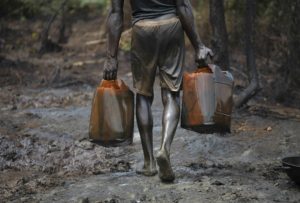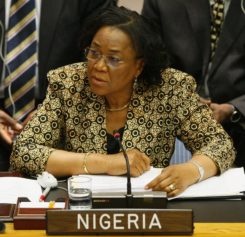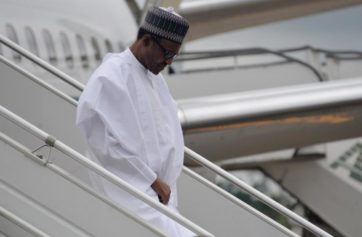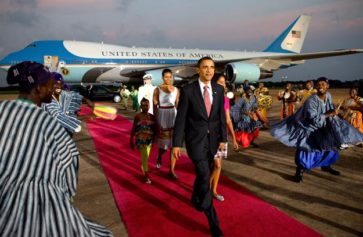If you guessed Venezuela, you’d be wrong. Although the South American country teeters on the edge of collapse and fits the above scenario, those same circumstances actually apply to Nigeria. Once a powerhouse of West Africa’s economy, the effects of slumping oil prices have converged with mounting security concerns and widespread energy shortages.
The OPEC country, which produces more than 2 million barrels of oil per day, is resorting to rationing crude: In order to fill their tanks, citizens must endure long lines overseen by authorities.
Nigeria “is caught in a macro hurricane,” famed short seller James Chanos told the annual Sohn Investment Conference last week. With currency reserves running low, the country could have “a big problem” within a few years, he said. Calling the country “a borderline failed state,” Chanos added that he was shorting South African assets, in part because of their exposure to Nigeria.
In the year that Nigerians elected a new president, oil prices collapsed by at least 30 percent. This week, Nigeria’s stock market staged a relief rally after the closely watched MSCI Frontier Markets Index decided to keep the country in the benchmark, after warning last month that Nigeria was at risk of being booted from the index.
Still, the outlook for Africa’s largest economy remains grim. The extremist group Boko Haram has created significant political and security challenges for the embattled government of Muhammadu Buhari, and raise risks that could hit oil production.
Read more here.



